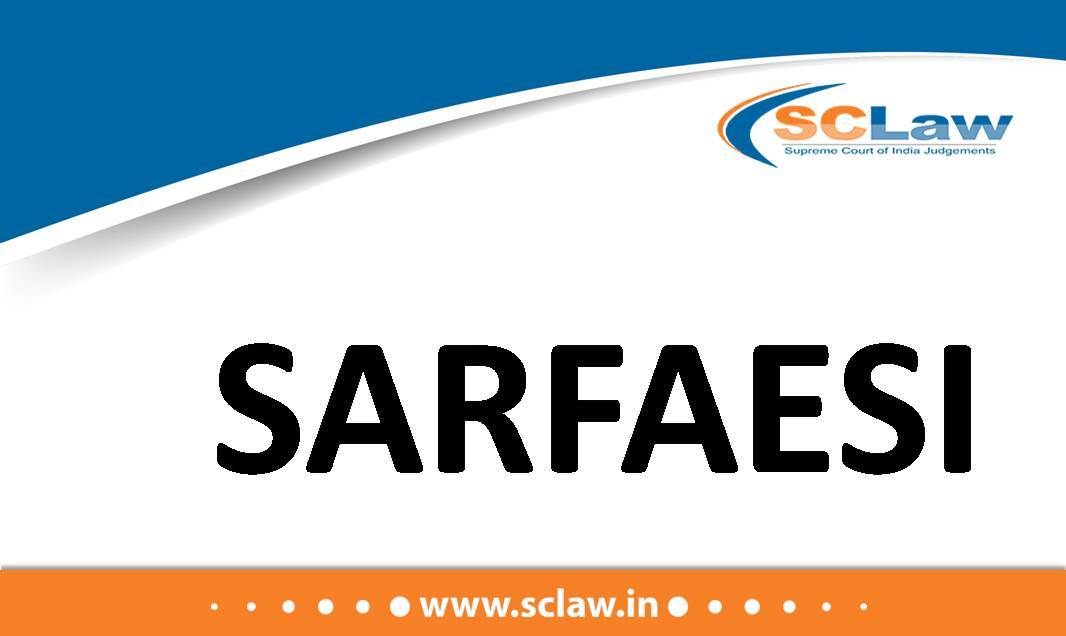Lapse of acquisition proceedings – Recorded owner never came forward to receive the compensation and therefore the same was lying unpaid – Therefore, unless and until the right and title of the original writ petitioner was established the High Court has materially erred in entertaining the writ petition
SUPREME COURT OF INDIA DIVISION BENCH GOVT. OF NCT OF DELHI AND ANOTHER — Appellant Vs. BHAGRATI AND ANOTHER — Respondent ( Before : M.R. Shah and C.T. Ravikumar, JJ.…
Lapse of acquisition proceedings – Appeal against – Subsequent purchaser has no locus to challenge the acquisition and/or lapsing of the acquisition –
SUPREME COURT OF INDIA DIVISION BENCH GOVT. OF NCT OF DELHI — Appellant Vs. SUNIL JAIN AND OTHERS — Respondent ( Before : M.R. Shah and C.T. Ravikumar, JJ. )…
(CrPC) – Sections 432 and 433-A – Remission of sentence – Since the case of the present petitioners is also similar to the case of the co-accused – Petitioners Application for remission need to be considered in the light of Laxman Naskar v Union of India (2002) 2 SCC 595
SUPREME COURT OF INDIA DIVISION BENCH JASWANT SINGH AND OTHERS — Appellant Vs. THE STATE OF CHHATTISGARH AND ANOHER — Respondent ( Before : Dinesh Maheshwari and Bela M. Trivedi,…
Merely because the wife was suffering from the disease AIDS and/or divorce petition was pending, it cannot be said that the allegations of demand of dowry were highly/inherently improbable and the said proceedings can be said to be bogus proceedings — High Court while quashing the criminal proceedings has seriously erred
SUPREME COURT OF INDIA Before: M.R. Shah & C.T. Ravikumar, JJ. Criminal Appeal No. 25 of 2023 (@ Special Leave Petition (Crl.) No.9899 of 2019) Decided on: 04.01.2023 Sunita Kumari…
Held, pre-condition of deposit of Rs.9,00,000/- for his release on regular bail, is totally unwarranted and uncalled for and set aside — Petitioner directed to be released on bail forthwith subject to his furnishing bail bonds.
SUPREME COURT OF INDIA Before: Surya Kant & V. Ramasubramanian, JJ. Special Leave to Appeal (Crl.) No(s).6604-6606 of 2021 Decided on: 12.01.2023 Kailash – Petitioner Versus The State of Uttar…
Chandigarh Administration shall not sanction any plan of a building which ex facie appears to be a modus operandi to convert a single dwelling unit into three different apartments occupied by three strangers; and no Memorandum of Understanding (MoU) or agreement or settlement amongst coowners of a residential unit shall be registered nor shall it be enforceable in law for the purpose of bifurcation or division of a single residential unit into floor wise apartments –
SUPREME COURT OF INDIA DIVISION BENCH RESIDENT’S WELFARE ASSOCIATION AND ANOTHER — Appellant Vs. THE UNION TERRITORY OF CHANDIGARH AND OTHERS — Respondent ( Before : B.R. Gavai and B.V.…
Uttar Pradesh Trade Tax Act, 1948 – Section 4-A(5) – Exemption – the goods manufactured on use of advance and/or modern technology, cannot be said to be a different commercial activity at all – High Court has not committed any error in refusing to grant exemption to the appellant – Appeal dismissed.
SUPREME COURT OF INDIA DIVISION BENCH AMD INDUSTRIES LIMITED (EARLIER KNOWN AS M/S. ASHOKA METAL DÉCOR PRIVATE LIMITED) — Appellant Vs. COMMISSIONER OF TRADE TAX, LUCKNOW AND ANOTHER — Respondent…
State Bank of India Officers Service Rules, 1992 – Rule 19(3) – Order of Appointing Authority dismissing the respondent from service after granting opportunity of hearing to the respondent was in consonance with the direction given by this Court and could not be said to be arbitrary illegal or in violation of Rule 19(3) of the Rules
SUPREME COURT OF INDIA DIVISION BENCH STATE BANK OF INDIA AND OTHERS — Appellant Vs. KAMAL KISHORE PRASAD — Respondent ( Before : Krishna Murari and Bela M. Trivedi, JJ.…
(SARFAESI) – Section 31(i) – Possession and Auction – – once the secured property is put as a security by way of mortgage etc. meaning thereby the same was not treated as agricultural land, such properties cannot be said to be exempted from the provisions of the SARFAESI Act under Section 31(i) of the SARFAESI Act – the borrower to prove that the secured properties were agricultural lands and actually being used as agricultural lands
SUPREME COURT OF INDIA DIVISION BENCH K. SREEDHAR — Appellant Vs. M/S RAUS CONSTRUCTIONS PVT. LTD. AND OTHERS — Respondent ( Before : M.R. Shah and M.M. Sundresh, JJ. )…
Evidence Act, 1872 – Ss 101 & 102 – Suit for Possession – Declaration of Title – A person in possession of land in the assumed character as the owner, and exercising peaceably the ordinary rights of ownership, has a legal right against the entire world except the rightful owner – the burden of proof lies on the plaintiff and can be discharged only when he is able to prove title – Weakness of the defence cannot be a justification to decree the suit.
SUPREME COURT OF INDIA DIVISION BENCH SMRITI DEBBARMA (DEAD) THROUGH LEGAL REPRESENTATIVE — Appellant Vs. PRABHA RANJAN DEBBARMA AND OTHERS — Respondent ( Before : Sanjiv Khanna and J.K. Maheshwari,…
















